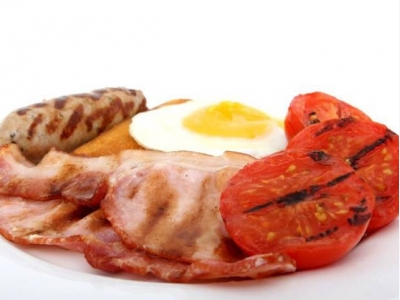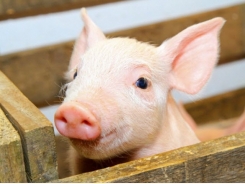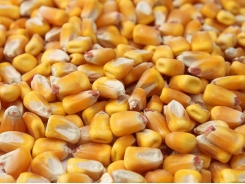What is wrong with feeding pigs, poultry animal by-products?

I am not convinced we should convert pigs and poultry to vegetarians, unless someone can convince consumers that this cause is worth enough for them to pay more for their eggs and meat. JCB Spares | freeimages
A closer look at how by-products in feed affect the animal, the producer, the renderer and the consumer
It all depends who you ask, as they all have a say in this case: the animal, the producer, the renderer, the consumer. Let's examine each case more closely because it is a topic that keeps surfacing, causing considerable concern and, in my opinion, more harm than good to all parties.
1. The animal. As far as I know, and I speak as a Ph.D. nutritionist, omnivorous animals such as poultry and pigs have no objection consuming animal by-products. It is in their nature to seek out and eat animal protein and fat. When it comes to farmed pigs and poultry, we must ensure animal by-products are of the highest quality and devoid of harmful substances and microorganisms. Some farmed animals might refuse to eat specific by-products, but this is a case of offering them a low quality product. So, as far as pigs and poultry are concerned, there is nothing wrong feeding them animal by-products that meet their criteria of quality and safety. I will let dairy and pet nutritionists speak for their trade.
2. The producer. For the pig and poultry producer, animal by-products can be an inexpensive source of nutrients that lowers formulation cost. So, they have a clear incentive in using such ingredients. Other animal products can be valuable assets in overcoming specific problems (such as egg and plasma antibodies or top-quality fish meal). In this latter case, cost is less of a concern, as withdrawal of such products would cause significant financial losses due to impaired health and productivity. Some producers have had really bad experiences (such as fish meal of low quality being a carrier of Salmonella), but again this is a matter of quality control and not a matter of feeding fishmeal, per se. If we were to ban fishmeal because it can be a source of Salmonella, what would stop us from banning cereals from being a source of potential carcinogenic mycotoxins in milk? Here, dairy nutritionists would object very strongly.
3. The renderer. It is true, renderers have a stake in promoting the use of animal by-products, and every move towards banning or restricting such use lowers their business potential. But, when we consider the whole food chain, what would be the outcome if we were to stop recycling animal by-products through feeds? Very simply, we would have to bury or burn such by-products, something that would result in animal-derived foods being more expensive. Is this what we want to achieve? Make meat and eggs more expensive by forcing pigs and poultry to become vegetarians? I hope not. But, it is the renderers who must invest heavily to protect their business. And, they can do this by investing in quality control and safety of the products they manufacture.
4. The consumer. This concerns us who consume animal-derived foods; I will let others take up the flag of vegetarianism in humans. It is true, nobody wants to pay more than they have for their food, but at the same time we want to make sure this food is not going to kill us. And, in my opinion, this is the root of the whole issue. Taking a consumer’s point of view, we are faced with such media-enhanced freak stories as mad-cow disease, toxins in milk, and Salmonella in eggs and meat. It is no wonder some consumers might start to believe it would be best to convert pigs and poultry to vegetarians (a paradox for people who are going to consume animal products). But, is this the correct solution? May I bring up again the case of mycotoxins, not in cereals fed to animals this time, but to regular old peanuts we consume while drinking beer? Should we ban these too (the peanuts, not the beer as this would certainly cause a social unrest)? I think not.
A complete ban is never so effective as quality control
History has shown this to be always the case: every time something is banned, the alternative is never as good, whereas some will find a way to go back to the original item. At the end, we always come around realizing there was a reason we did things the way we did them in the first place, and it is best to make them better instead of abandoning them altogether.
I would have liked to discuss here the case of alcohol prohibition in the U.S. (a story that would tie well with the peanuts story above), but let’s bring up something more relevant (albeit boring and beaten to death) to us: antibiotics in animal feeds. Indeed, we ended up banning them in the European Union, but only for sub-therapeutic use. In fact, therapeutic usage has increased dramatically, and alternatives are being used extensively making feed more expensive but I think this was the right approach. This is a case where a substance (antibiotics) was considered inappropriate for use in animals (as it would render similar antibiotics useless for humans), but their use was not banned. It was done in a controlled manner keeping the basic role of antibiotics intact (cure diseases in animals), while other compounds were brought up to replace their side role (growth promotion).
At the very end, although it can be done and I must confess I have had clients who have done this without the least of the problems I am not convinced we should convert pigs and poultry to vegetarians, unless someone can convince consumers that this cause is worth enough for them to pay more for their eggs and meat. Instead, I believe we must work towards ensuring quality and safety of animal by-products, as we must do with all ingredients we use in animal feeds.
Related news
Tools

Phối trộn thức ăn chăn nuôi

Pha dung dịch thủy canh

Định mức cho tôm ăn

Phối trộn phân bón NPK

Xác định tỷ lệ tôm sống

Chuyển đổi đơn vị phân bón

Xác định công suất sục khí

Chuyển đổi đơn vị tôm

Tính diện tích nhà kính

Tính thể tích ao




 Six pig, poultry alternative feed ingredients
Six pig, poultry alternative feed ingredients  Feed formulation: How to maximize corn in pig…
Feed formulation: How to maximize corn in pig…